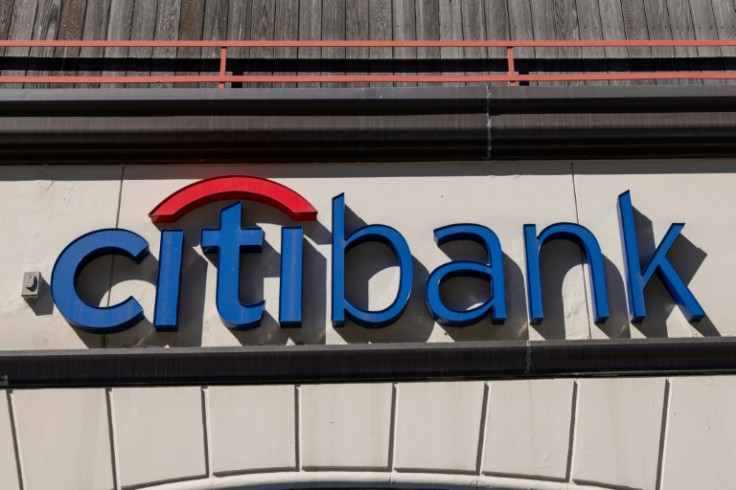Solid Profits At Banks As Execs Debate US Economic Risks

Large American banks reported solid earnings Friday behind still-high interest rates while offering varying views on the likelihood the United States can avoid a near-term recession.
JPMorgan Chase reported higher profits, citing increased asset management and investment banking fees as well as the lift from lofty interest rates, while Citigroup and Wells Fargo reported dipping profits on higher costs.
Compared with a year ago, the banks have seen some uptick in write-offs for bad loans, reflecting the weaker profile of low-income consumers. However, bankers still point to a healthy American employment market and a lingering boost from pandemic-era government spending.
Officials such as Federal Reserve Chair Jerome Powell have pointed to the chance the US economy can achieve a "soft landing" -- shifting relatively painlessly from a period of high growth and elevated inflation to one of slower growth, while avoiding a recession.
While allowing that "many economic indicators continue to be favorable," JPMorgan Chief Executive Jamie Dimon highlighted risks to the outlook, including geopolitical instability and the possible persistence of inflation.
"The market is probably too happy," Dimon said on a conference call with reporters. "I think the chance of bad outcomes is higher than other people think."
Dimon's comments echoed his tone in a shareholder letter this week in which he warned interest rates could go even higher. He emphasized that he is not predicting this but merely pointing it out as a possibility.
On Friday, Citigroup Chief Financial Officer Mark Mason offered a somewhat more optimistic appraisal.
While noting that "there's a lot of risk out there," Mason characterized the global economy as generally "resilient," with consumers mostly healthy and inflation "moving in the direction that central banks want."
Mason sees a "soft landing" in the United States as "increasingly likely" and says Europe appears poised for modest growth after a period of stagnation.
The chief concern, along with geopolitical risk, "is still around inflation" and the question of when, and by how much, rates will fall, Mason said in a conference call with reporters.
At JPMorgan, profits came in at $13.4 billion, up six percent from the year-ago period, boosted by higher net interest income (NII) -- the benefit from charging more for loans minus the higher interest paid to depositors.
Revenues rose nine percent to $41.9 billion.
Markets were a weak spot, with trading revenue dropping for fixed income and staying flat for equities.
While JPMorgan increased its estimate for full year NII by $1 billion, to $89 billion, the bank said it expects the boost from higher interest rates on profits to erode or "normalize" over time.
At Citi, profits were $3.4 billion, down 27 percent from the year-ago period, in part due to a two percent drop in revenues to $21.1 billion.
While the results were boosted by higher NII, that was offset by the impact of higher credit losses.
Another drag came from $110 million in severance costs. Through the end of the quarter, Citi has cut 7,000 of the 20,000 jobs targeted in a global reorganization, Mason said.
Wells Fargo reported profits of $4.6 billion, down seven percent from the year-ago period. Revenues rose one percent to $20.9 billion.
Unlike the other two banks, Wells Fargo had an eight percent drop in NII, which it attributed to a shift in consumers to higher interest products.
But the bank cited higher investment banking fees as a strong point and said it reduced provisions for commercial real estate and auto loans -- two areas that have seen an erosion in credit quality in recent quarters.
Shares of JPMorgan slumped 4.5 percent, while Citi rose 0.1 percent and Wells Fargo climbed 0.3 percent.
© Copyright AFP {{Year}}. All rights reserved.





















